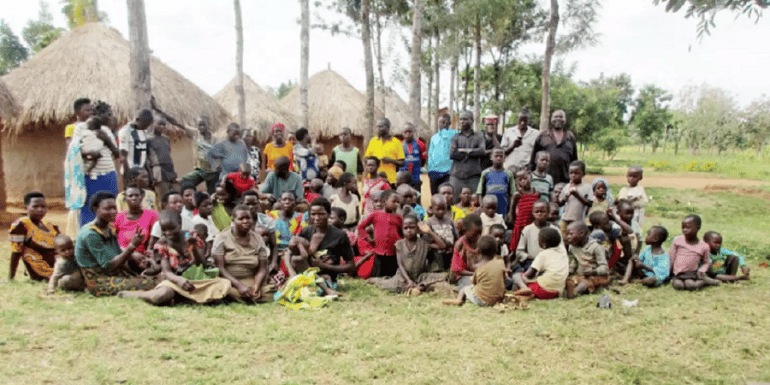Musa Hasaya Kasera has so many children that he cannot remember the names of most of them.
The Ugandan villager struggles to provide for his large family, which he says includes 12 wives, 102 children and 578 grandchildren, and now feels "enough is enough".
"At first it was a joke...but now it has its problems," the 68-year-old told AFP from his village of Bugisa in Butaleja, a remote provincial district of Uganda.
"With my health declining and only 8 acres of land for such a huge family, two of my wives left because I couldn't provide them with the basics like food, education, clothing," he says.
Hasaya, who is currently unemployed but has become something of a tourist attraction in his village, said his wives are now taking contraceptive measures to stop further family expansion.
“My husbands take birth control pills, but I don't take any measures. I don't expect to have more children because I have learned from my irresponsible behavior to have so many children that I cannot take care of," she explains.
His family lives in a crumbling house with a rusted tin roof or in nearby thatched huts.
He married his first wife in 1972 in a traditional ceremony when they were both about 17 years old and a year later he had his first child, Sandra Nabwire.
“Because there were only two siblings in our family, my brother, relatives and friends advised me to marry many women in order to have many children and expand the family name.
Good family man
Fascinated by Hasaya's status as a merchant and butcher, many villagers gave him their daughters in marriage, even though some were under 18 years old.
Child marriage was banned in Uganda only in 1995, while polygamy is allowed in the East African country, according to specific religious traditions.
Hasaya's 102 children range in age from 10 to 50, while his youngest wife is around 35.
“…I can only remember the name of my first and last child but some of my children's names I don't remember,” says Hasaya leafing through his notebooks in search of details about his children.
"Their mothers help me identify them."
However, he himself cannot even remember the names of some of his wives and has to consult one of his sons – 30-year-old Saban Magino, who is a teacher and helps manage the family's affairs as he is one of his few children who have studied.
To resolve the disputes of such a large family, Hasaya says its members meet once a month.
A local official in this village of about 4.000 residents says that despite the challenges Hasaya has "raised his children very well".
Minimal food
The people of Bugisa are mainly peasants and are engaged in small crops such as rice or coffee.
Many members of his family try to earn money by doing jobs for their neighbors.
"But the food is not enough. We are obliged to feed the children once or at best twice a day," says Hasaya's third wife, Zambina.
She adds that if she had known that he had other wives, she would not have agreed to marry him.
"Even when I came here and was left to my own devices...it brought the fourth, the fifth, until it reached 12," she says indignantly.
Two of his wives have already left Hasaya and three others live in another town two kilometers away due to overcrowding in their household.
Asked why he thinks that more wives did not leave him, he replies: "They all love me, you see they are happy!".
Source: RES-EAP
